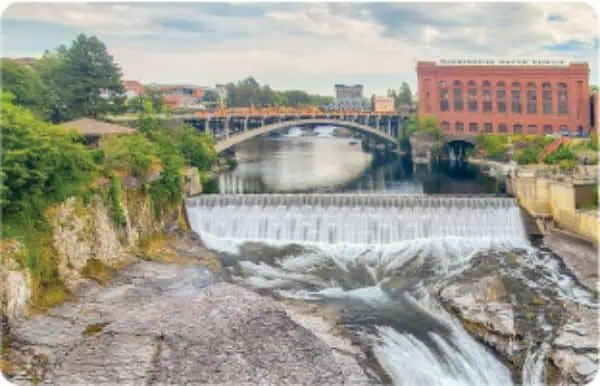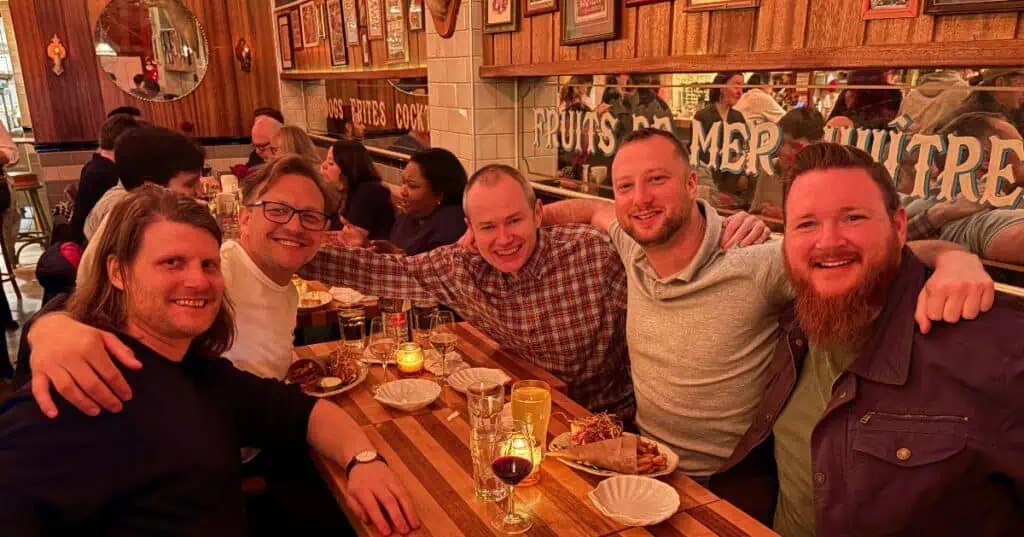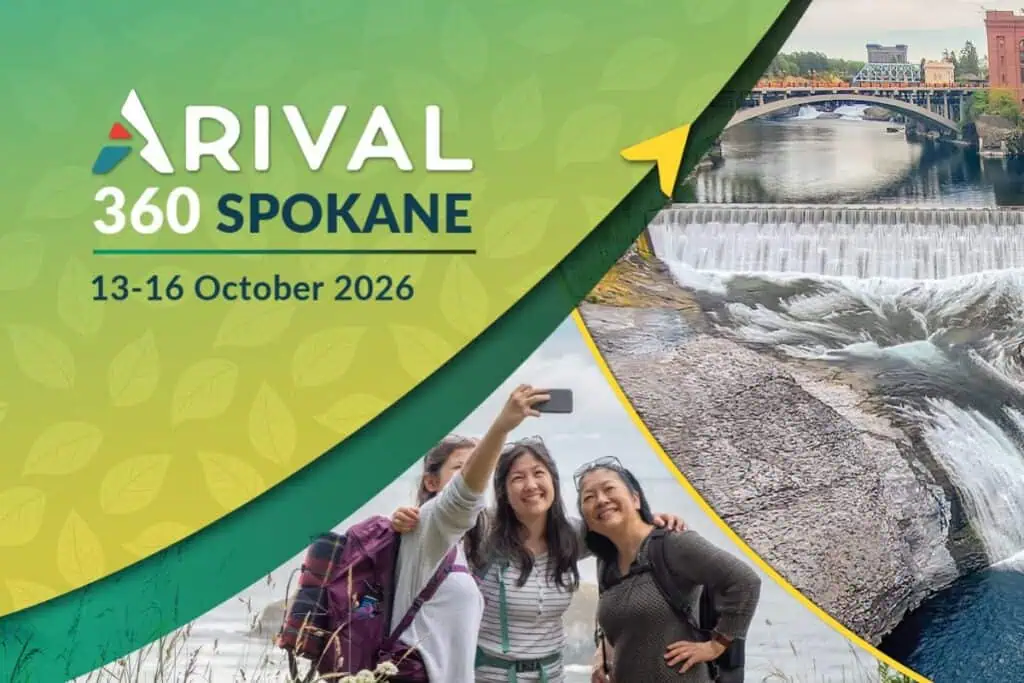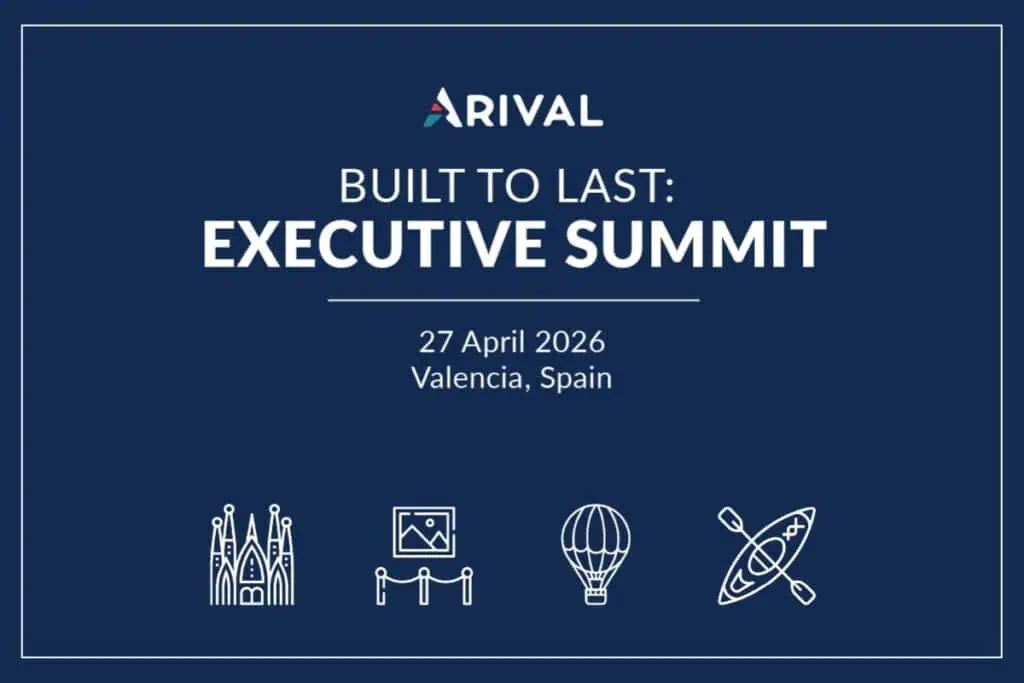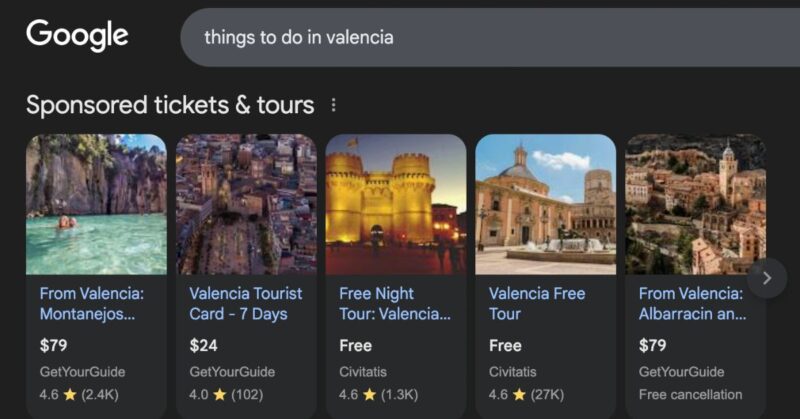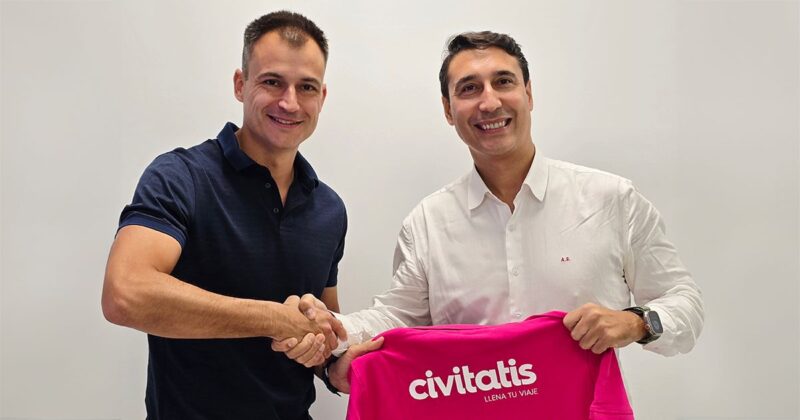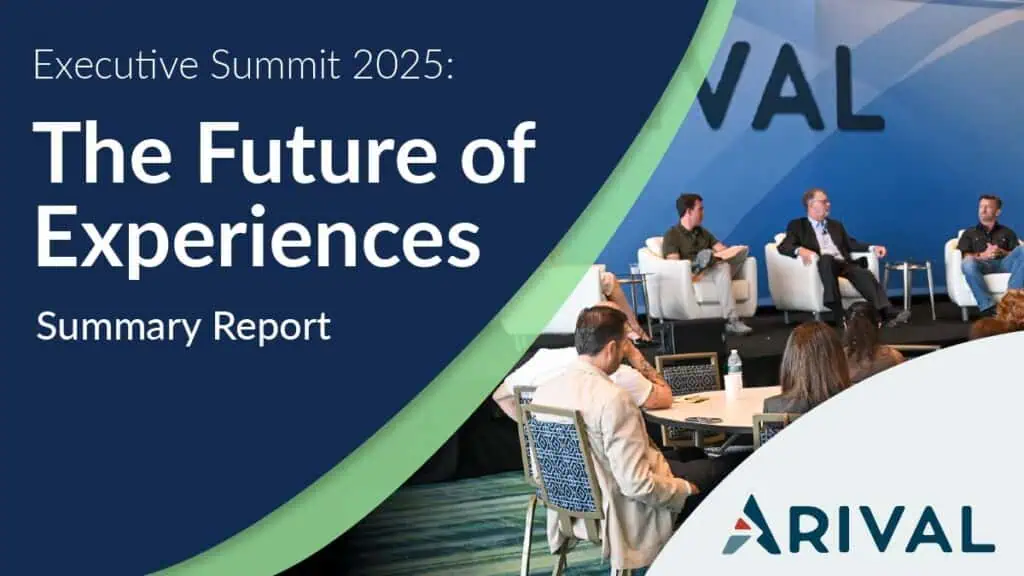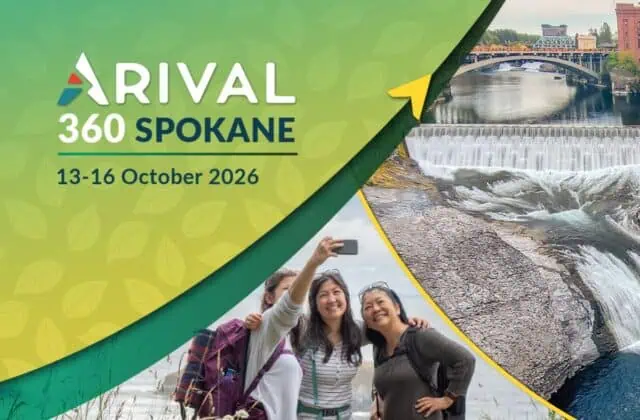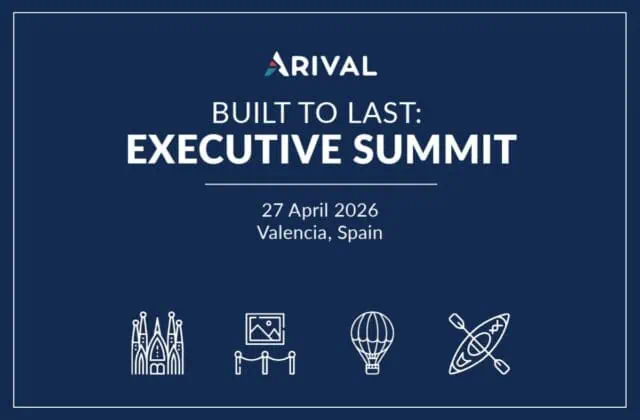We always say you never know what might come out of a conversation at Arival. In the case of the five smiling people in the header photo above, it was a deal born in the Arival networking lounge.
Secret Food Tours recently finalized a deal to acquire Local Food Tours, a company based in Quebec, Canada. The acquisition means Secret Food Tours, which already operates in over 100 destinations across five continents, adds Quebec City to their roster, and significantly increases the size of their Montreal presence.
Although most of Secret Food Tours’ growth has been organic — expanding gradually to new cities with new products and tours — this isn’t their first acquisition. And in this regard, they’re not keeping secrets: co-founder Oliver Mernick-Levene, who has spoken multiple times at Arival in breakout sessions on mergers and acquisitions, is eager to shed light on the process for other operators who may be considering buying or selling in the future.
What to expect if you’re looking to buy a tour company
So you want to buy a(nother) tour company. Acquiring a new company is one way to grow your own company, whether you’re looking to expand within a single destination or branch out to multiple locations.
According to Mernick-Levene, there are multiple factors involved in seeking potential acquisitions and deciding whether to acquire a particular company, including:
- You want to buy something you don’t have (for example, a company that enables you to expand to a new location, or add new tour types).
- They have people or ideas you don’t have (for example, you may have reached a plateau with organic growth and be looking to add something new from beyond your regular scope).
- How much the company is valued at (in effect, the company’s EBITDA number — more on this later).
- Synergies (what your current company has in common with the potential acquisition company — for example, a food tour company buying another food tour company rather than, let’s say, a sailing tour company).
In the case of Secret Food Tours acquiring Local Food Tours, Mernick-Levene shares that synergy had a lot to do with it: similar to Mernick-Levene and his co-founder, Nico Jacquart, Local Food Tours’ founders started with pub crawls before moving on to food tours.
What to expect if you’re looking to sell a tour company
Tour company owners look to sell for any number of reasons, from retirement to wanting to move on to a new project or company type.
“Selling a company is definitely something special that doesn’t happen very often in an entrepreneur’s life, and can also be an emotional roller coaster,” said Frederik Nissen, who co-founded Local Food Tours 15 years ago alongside Ismael Unvik. Nissen shares that, while he and Unvik were initially hesitant to sell to a competitor, they were “really impressed by the professionalism and seriousness of the management team.” After over a year of back and forth between the two companies, they eventually accepted an offer and are now looking forward to developing a floating sauna experience product in Quebec City.
As a seller, finding the right buyer can be a challenge, particularly if your company was born out of a passion project: you want to make sure that it’s left in the right hands.
“We want to keep their name, keep their branding, keep their products, keep their guides,” said Mernick-Levene. “And it’s very important we look after their staff. And that’s in the condition of the deal.”
However, you also want to make sure that you get a fair price, and for a small to medium-sized company like Local Food Tours, this can itself be a challenge.
“There aren’t many companies that are going to buy an acquisition at that sort of level,” said Mernick-Levene. “A big company is not going to be interested in a company that’s only [valued between one to three million U.S. dollars]. But a small company, or let’s say the management team, they probably wouldn’t have the money lying around in order to buy [the company] because it’s just too expensive for them. So we, as a competitor, are one of the few people that would be in a position to actually buy.”
27-29 April 2026
Insider Pro Access Members Save 20%
THE event of the year for the European in-destination experiences industry
Save up to €730 with a Holiday Savings Ticket!
How to determine the value of a tour company (EBITDA)
So what kind of price are we talking about, and how do you get there?
In the case of Local Food Tours, Mernick-Levene reveals that the offer they made was roughly four times the company’s EBITDA number. EBITDA, which stands for earnings before interest, taxes, depreciation, and amortisation, is essentially a measure of a company’s profitability.
Mernick-Levene describes how a company’s profitability and EBITDA number relates to its potential acquisition price:
- Companies with annual revenue under $1M expect to sell for one to three times EBITDA.
- Companies with annual revenue of $1M-$5M: expect to sell for between four to five times EBITDA.
- Companies with an annual revenue of $5M-$20M: expect to sell for between five, six times EBITDA.
- Companies over $20M annual revenue: expect to sell for between seven/eight and 12 times EBITDA
Of course, there are things that can boost the value of a company, explains Mernick-Levene. “How fast are you growing? Do you have something very unique, some technology, or do you have a new idea?” Other factors can include assets, quality of guides, percentage of bookings that come direct vs. through third-party resellers such as online travel agencies (OTAs), strength of the brand and number of positive reviews.
But there are a lot of things that can detract from it, he continues, such as if the founder leaving means a significant loss of knowledge and abilities, or if a significant portion of the company’s revenue is dependent on a single client that might decide to stop working with the new owners, or a business that doesn’t have its financials, taxes and legal matters in good order.
Learn more about how to determine the fair value of a tour company in this article with insights from Chenmark Partner Trish Higgins.
How to manage a smooth post-acquisition transition
Once a purchase price is agreed upon and finalized, the work doesn’t end there. In order to ensure a company’s value is maintained post-acquisition, it’s essential to manage the transition and integration process smoothly.
“That may be the most difficult part of all because the risk is so high,” says Mernick-Levene. “If you mess it up, you’ve lost a lot of money. But if you do it well, then you’ve gained a lot… and at that point there is no going back.”
Based on Secret Food Tours’ past experience with acquisitions, Mernick-Levene says there are three essential factors to managing a smooth transition:
- Respect the existing guides and other staff: Understand that a change of ownership can be a difficult and uncomfortable process for the staff. Ensure the staff and guides are treated well, that job contracts and pay rates are fairly maintained, communicate with them clearly and kindly about what is happening, and introduce new processes gently and at a slow, easy pace. Beyond the formal transition, pay attention to aspects of company culture that can easily be overlooked: for example, do they play music in the office (or not)? What kind of staff appreciation events take place? Do the guides eat with the guests?
- Involve the ex-founders as much as possible: The former owners are an essential part of the transition process, and the involvement of the former owners and/or key managers can make or break its success. Mernick-Levene recommends including a clause in the contract that ensures their involvement for at least a couple of months to help manage the integration process.
- Ensure a smooth tech transition: From bank account access to key software and online booking systems to social media accounts, ensure nothing is left out in the admin access handover. Many accounts may still have legacy email addresses or phone numbers attached, system passwords or backups, and two-factor authentication enabled. This is also why keeping the former owners involved in the transition process can be helpful.
At the end of the day, “every single acquisition has got its own unique case, and it’s not going to be 100 percent perfect,” Mernick-Levene reflects. For example, he shares an anecdote about opening a new location in Spain, where the guides insisted they “can’t work under these conditions” and must eat paella with the guests. While normally Secret Food Tour guides don’t eat with the guests, in the case of Spanish culture and paella specifically, the guides insisted it was essential.
“I’m like, ‘you want to eat the paella every day?’ And they’re like, ‘yeah, we have to. It’s our culture. You can’t eat it alone, you know?’” Mernick-Levene shares that he would consider it horrible to have to eat the same food every day, but since it was so important to the guides in that particular case, they changed the policy.
“In any relationship in life, whether it’s marriage, whether it’s a business relationship, or whether it’s the coming together of two businesses, there’s always going to be some teething challenges,” he says.

13-16 Oct 2026
Insider Pro Access Members Save 20%
THE event of the year for creators and sellers of destination experiences to connect, learn & grow.
Get YourSuper Early Bird Ticket Through 13 January!
Learn More About Buying & Selling Experience Businesses at Arival
Buying and selling tour, activity and attraction businesses is a recurring topic at Arival events. At our upcoming Arival 360 event in Washington, DC, we’ll have a town hall-style roundtable discussion with Secret Food Tours co-founder Oliver Mernick-Levene, industry veteran Stephen Oddo and Chenmark Partner Trish Higgins. Higgins will also be leading an in-depth, extended workshop on the details behind buying and selling a tour business. Learn more and register here!
Sign up to receive insights tailored for the in-destination industry as well as updates on Arival.
Header photo provided by Secret Food Tours. Pictured, left to right: Frederik Nissen (co-founder Local Food Tours), Tannah Matus (CFO Secret Food Tours), Ismael Uñvik (co-founder Local Food Tours), Oliver Mernick-Levene (co-founder Secret Food Tours), John Voci (Head of Americas Secret Food Tours).

